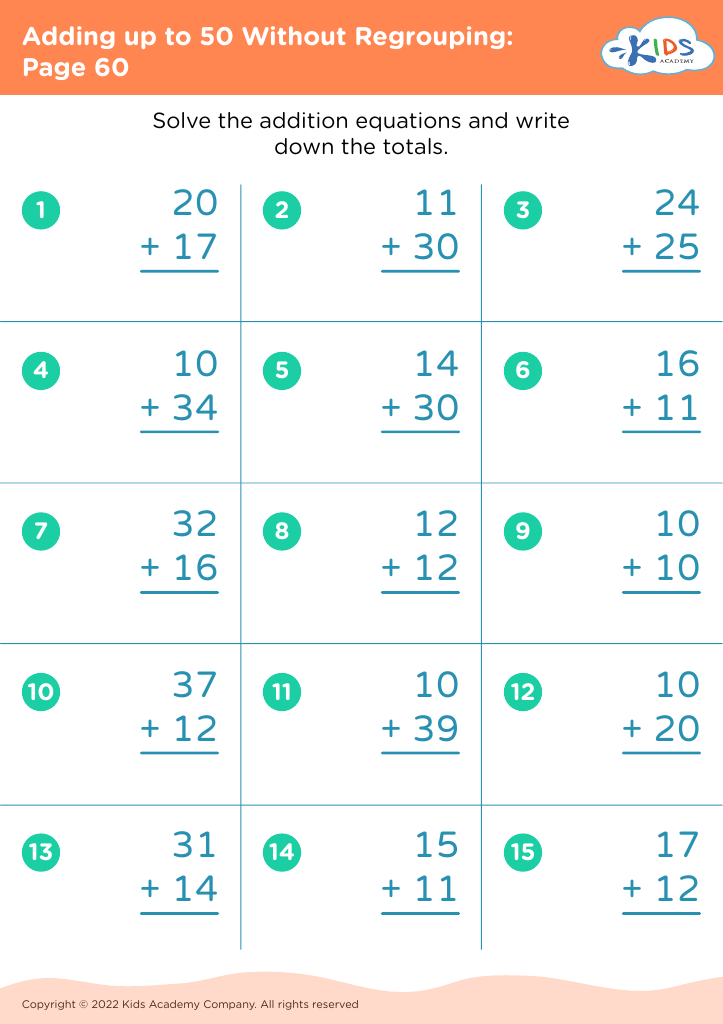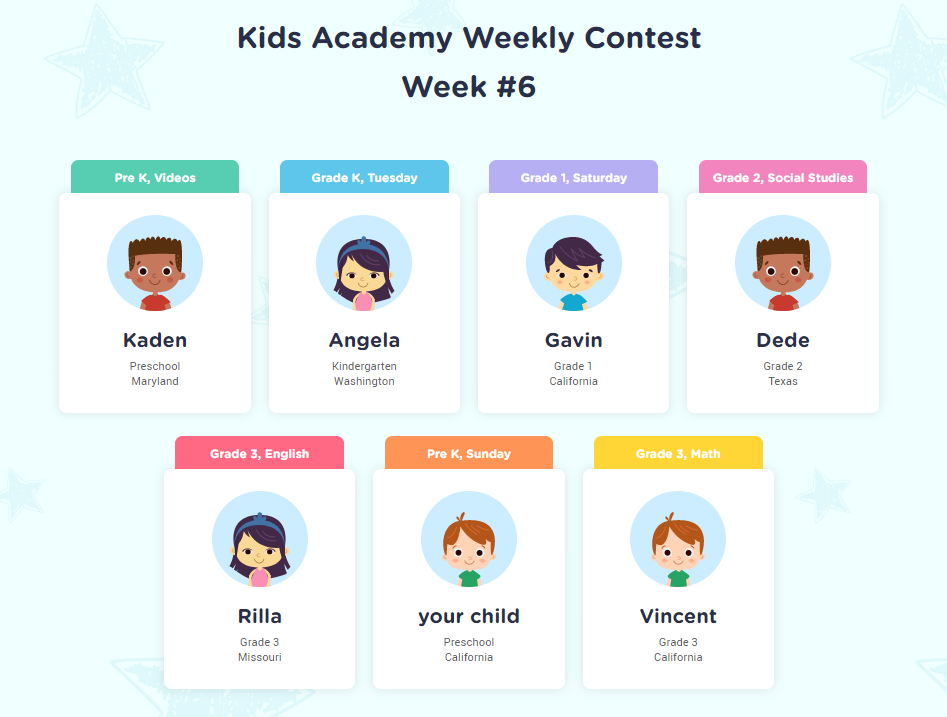Comparing weights Worksheets for Ages 6-9
4 filtered results
-
From - To
Our Comparing Weights Worksheets for ages 6-9 make learning fun and interactive! These worksheets help young learners grasp the essentials of comparing weights, enhancing their understanding of measurement and data interpretation. Through engaging tasks and colorful illustrations, children can apply mathematical concepts to real-world scenarios. Ideal for use in both classrooms and at home, these worksheets support the development of critical thinking, problem-solving skills, and a strong math foundation. Designed specifically for early learners, each exercise is easy to navigate and focuses on making weight comparison intuitive and enjoyable. Make math exciting with our expertly crafted worksheets!
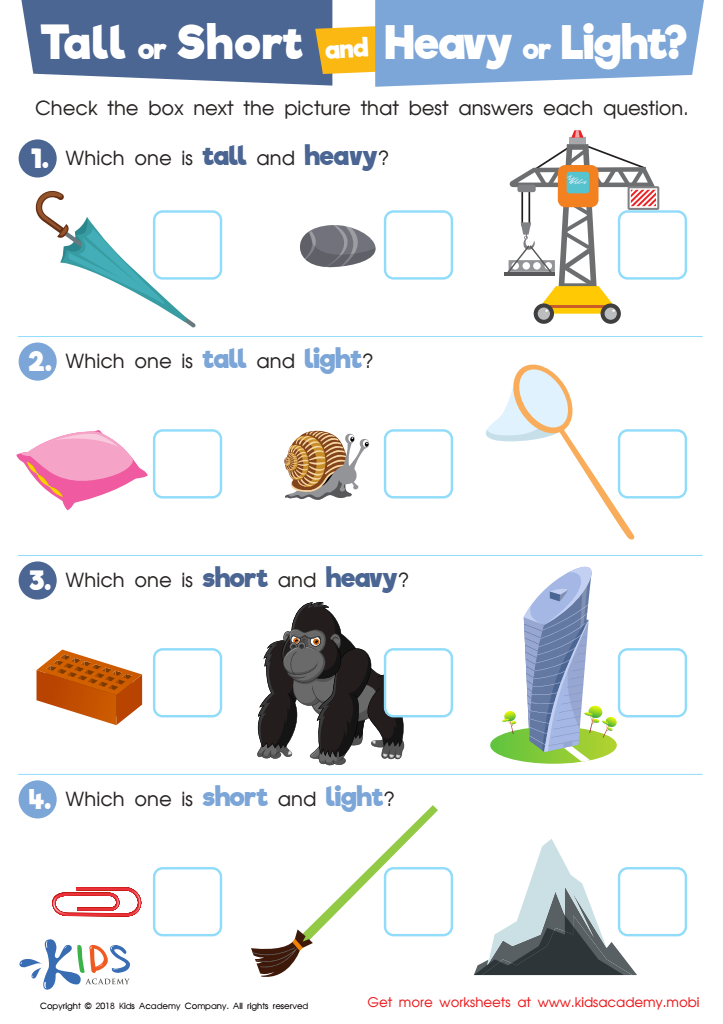

Tall or Short and Heavy or Light? Worksheet
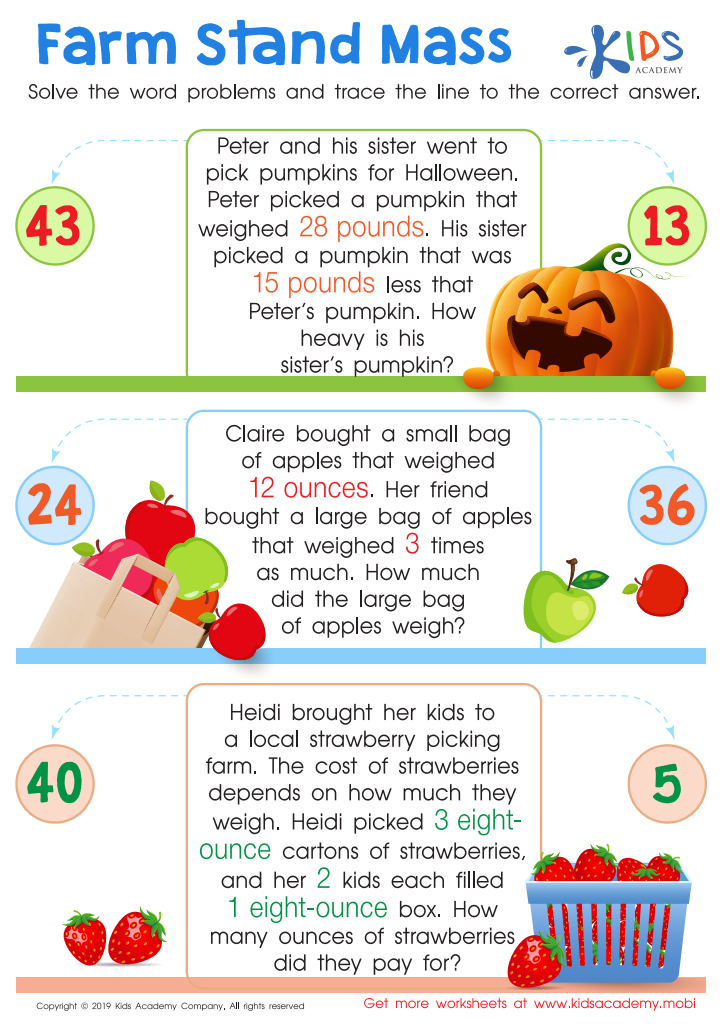

Farm Stand Mass Worksheet
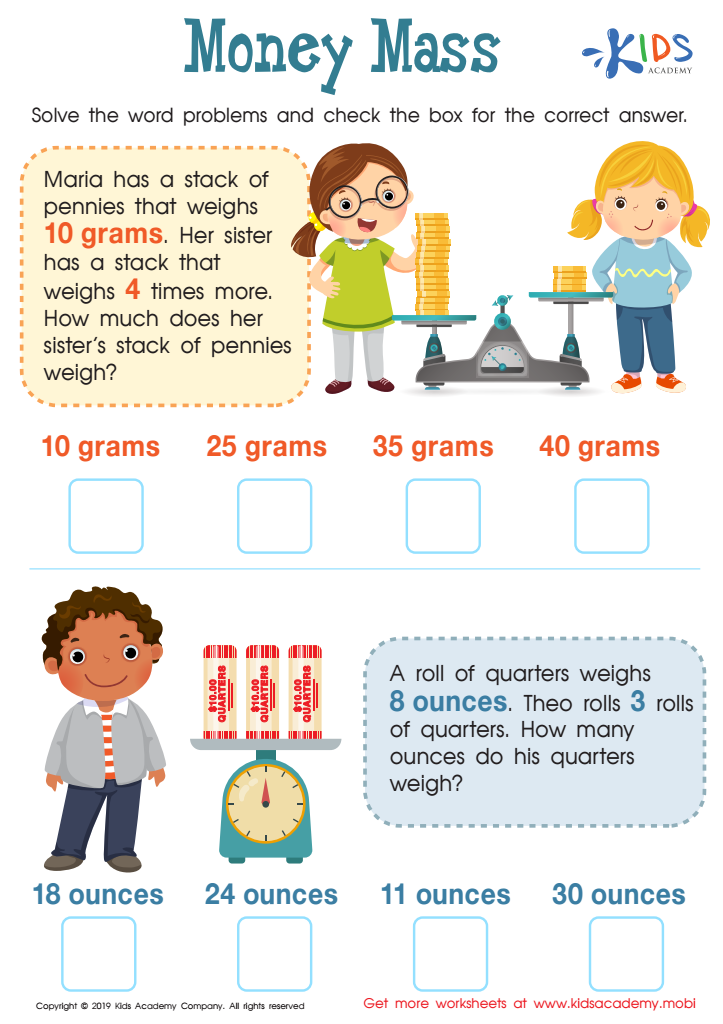

Money Mass Worksheet
At ages 6-9, children are in a critical stage of cognitive development where they begin to grasp fundamental mathematical and scientific concepts. Comparing weights is an essential skill that introduces them to measurement and helps in budding problem-solving abilities. Firstly, engaging in comparisons instills a sense of curiosity and analytical thinking. By observing differences in weights, children learn to reason, hypothesize, and draw conclusions based on evidence—skills invaluable in education and future life.
Moreover, activities involving weight encourage experiential learning. Handling various objects aids in developing fine motor skills and enhances their tactile senses. These hands-on experiences make abstract concepts more concrete, fostering better understanding and retention.
From a mathematical perspective, weight comparison is foundational for subsequent lessons in measurement and data. It lays groundwork for understanding more complex ideas such as volume, density, and prediction strategies, followed by calibration with standardized units.
For parents and teachers, facilitating activities that compare weights doesn't just tick educational boxes; it nurtures innate curiosity and encourages cooperative learning. Setting challenging tasks motivates children and instills a sense of accomplishment, promoting a positive attitude towards learning. Therefore, incorporating weight comparisons into early education sparks inquisitiveness, equips vital skills, and inspires a life-long love for learning.
 Assign to My Students
Assign to My Students
